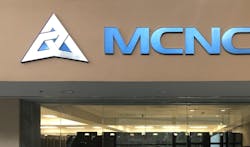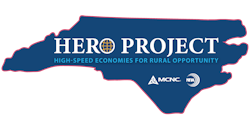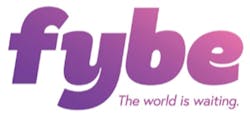MCNC and partners weigh possible paths to navigate around BEAD funding uncertainty
With the advent of the Trump Administration’s changes to the Broadband Equity, Access, and Deployment (BEAD) program, non-profit groups like MCNC and others are now trying to understand and navigate the new rules.
In June, the National Telecommunications and Information Administration (NTIA) issued a Policy Notice instituting what it calls “critical” reforms to the program. When the NTIA completed its review, it announced reforms that will remove rules favoring technologies like fiber and eliminate other regulations.
The Policy Notice also adopts a technology-neutral approach for the BEAD subgrantee selection process by reverting to statutory language for the definition of “Priority Broadband Project.”
Tracy Doaks, president and CEO of MCNC, said that the organization and its partners are trying to understand the structural changes surrounding BEAD.
“We’re all watching because we don’t know what’s going to happen,” she said. “It’s hard to discern and interpret what the changes to BEAD mean.”
A big concern is that BEAD funding is no longer focused on favoring fiber-based network implementations. “We and our partners are looking at how that funding could be awarded or not awarded to fiber build projects,” Doaks said.
Setting middle mile seeds
With over 40 years of experience operating one of the longest-running research and education networks, MCNC remains active in driving the development of new middle mile networks.
In 2023, MCNC secured federal funding to expand its broadband network once again throughout North Carolina. This culminated in the MCNC’s High-Speed Economies for Rural Opportunity (HERO) middle mile project, which was seen as preparing for BEAD, as it would provide last-mile providers with a middle mile network connection.
The HERO network will provide improvements to broadband access and affordability across central and southeastern North Carolina. HERO will extend MCNC’s reach via the construction of 209 miles of new middle mile fiber through substantially unserved and underserved areas, including some of the state's highest poverty areas.
MCNC received $11.2 million from the U.S. Department of Commerce’s National Telecommunications and Information Administration (NTIA) for the High-Speed Economies for Rural Opportunity, or HERO Project. Funded through the federal “Internet for All” initiative, the HERO Project will directly support improvements to broadband access and affordability in central and southeastern North Carolina. The total cost of the HERO Project is estimated at approximately $19 million. No state tax dollars were used for this expansion.
The 11 counties to benefit from this project currently have over 16,000 unserved and 12,000 underserved housing units, including many substantially unserved local communities. In all, HERO would impact over 350,000 housing units and 696 community anchor institutions.
Doaks described the HERO project to close what she calls the “donut hole in North Carolina.”
Before being awarded the grant, MCNC advocated that it could have an impact on how local communities could leverage BEAD funding to expand broadband to more challenging areas of the state.
“When I met with NTIA, I told them what this middle mile fiber could mean for last-mile providers, needing less of an investment to build out to residences and small businesses across the state,” Doaks said. “We saw this as a precursor to BEAD.”
It did not take long for local providers to notice MCNC’s efforts. Several last-mile partners, including an electric cooperative, approached the organization.
“All of the interest from these providers was in anticipation of BEAD,” Doaks said. “We will build this and connect more of our community anchor institutions and work with last-mile providers to connect residences.”
Weighing funding options
As uncertainty looms over the future implementation of BEAD funding for fiber-based projects, MCNC is working with its partners to explore alternative options.
The organization is examining how funding could be allocated or withheld for fiber projects.
“We must think about other options that are out there,” Doaks said. “Perhaps federal funding might not be the only option in the future. As a community, the question is how to come together to find other funding, whether it be private or other groups that might want to come together to provide funding, especially in areas that need it the most.”
A key concern is how to allocate broadband funding to areas of North Carolina and other states that currently have no broadband options.
“We need to look at what other partners we could consider, whether they are other investors in helping to build out fiber,” Doaks said.
Focus on partnerships
To enhance its reach into rural communities in North Carolina, MCNC has actively pursued partnerships with last-mile providers.
A big group that has been stepping up with MCNC is the electric cooperatives. Unlike an incumbent provider, electric cooperatives are member-owned and have strong community ties.
“Electric cooperatives come from the community they are trying to serve,” Doaks said. “That’s the nice thing about electric membership co-ops—they are community-based and know who they are working for and who they are supporting.”
One of those partners is Roanoke Cooperative, an early pioneer that leveraged its facilities to build out fiber broadband. Much of North Carolina has been served by traditional incumbents, including Charter Communications (Spectrum) and Brightspeed, which prioritized larger cities and towns in the state.
The cooperative offers fiber broadband service under its Fybe brand. Fybe provides fiber broadband service to several thousand subscribers in North Carolina, but it plans to expand fiber access to the bulk of unserved addresses throughout Halifax County.
It participates in a coalition dubbed Encore, a nonprofit collaboration between MCNC, North Carolina Electric Membership Cooperatives (EMC), and Fybe.
In 2024, Fybe won a $9 million Growing Rural Economies with Access to Technology (GREAT) grant to help bring fiber to the largely underserved, heavily rural residents of Martin, Bertie, Halifax, and Hertford counties.
“Roanoke Cooperative has been a pioneer and is using its equipment in North Carolina to expand throughout their footprint using the MCNC backbone,” Doaks said. “The cooperative has been very successful in the Northeast part of North Carolina, so we come together as a collaboration to replicate the same model across parts of the state that need it the most.”
And while Roanoke is the first cooperative to work with MCNC, it is approaching others across the state to do the same.
“We are talking with other co-ops and encouraging the use of their equipment in the same way,” Doaks said.
BEAD holding pattern
Cooperatives like Roanoke have been able to make key fiber network expansions thanks to federal broadband grants made possible by the 2021 American Rescue Plan Act (ARPA) and the Infrastructure Investment and Jobs Act.
Fybe was able to leverage several counties’ ARPA funding, and like others, would like to obtain some of the $1.4 billion in BEAD funding North Carolina was set to receive.
MCNC and its partners, such as Roanoke Cooperative, are now in a relative holding pattern regarding the BEAD funding situation.
“Fybe applied for state funding, which it was able to obtain for additional buildouts, but it was also relying on some BEAD funding for an expansion across the state, which is now on hold,” Doaks said. “It’s a massive benefit to North Carolina if the electric cooperatives could expand connectivity.”
Another place where BEAD could come in handy is helping to rebuild the communities affected by Hurricane Helene and the 100-year flood.
MCNC has been leveraging its fiber, aerial, and underground infrastructure to help smaller regional providers that are struggling.
“We’ve been helping these regional providers devise plans for permanent solutions and resiliency,” Doaks said. “BEAD could be a part of that as well, but the holdup on that puts a lot of these projects on a standstill unless other funding is found.”
In the near term, MCNC and others have been looking to the state for potential solutions. North Carolina has been helping MCNC and others get access to broadband funding for the Western parts of the state.
“The state has been amenable,” Doaks said. “We have funding in the budget for resiliency for MCNC and two other providers in the Western part of the state to try to rebuild the infrastructure that Hurricane Helene destroyed.”
For related articles, visit the Broadband Topic Center.
For more information on high-speed transmission systems and suppliers, visit the Lightwave Buyer’s Guide.
To stay abreast of fiber network deployments, subscribe to Lightwave’s Service Providers and Datacom/Data Center newsletters.
About the Author
Sean Buckley
Sean is responsible for establishing and executing the editorial strategy of Lightwave across its website, email newsletters, events, and other information products.




